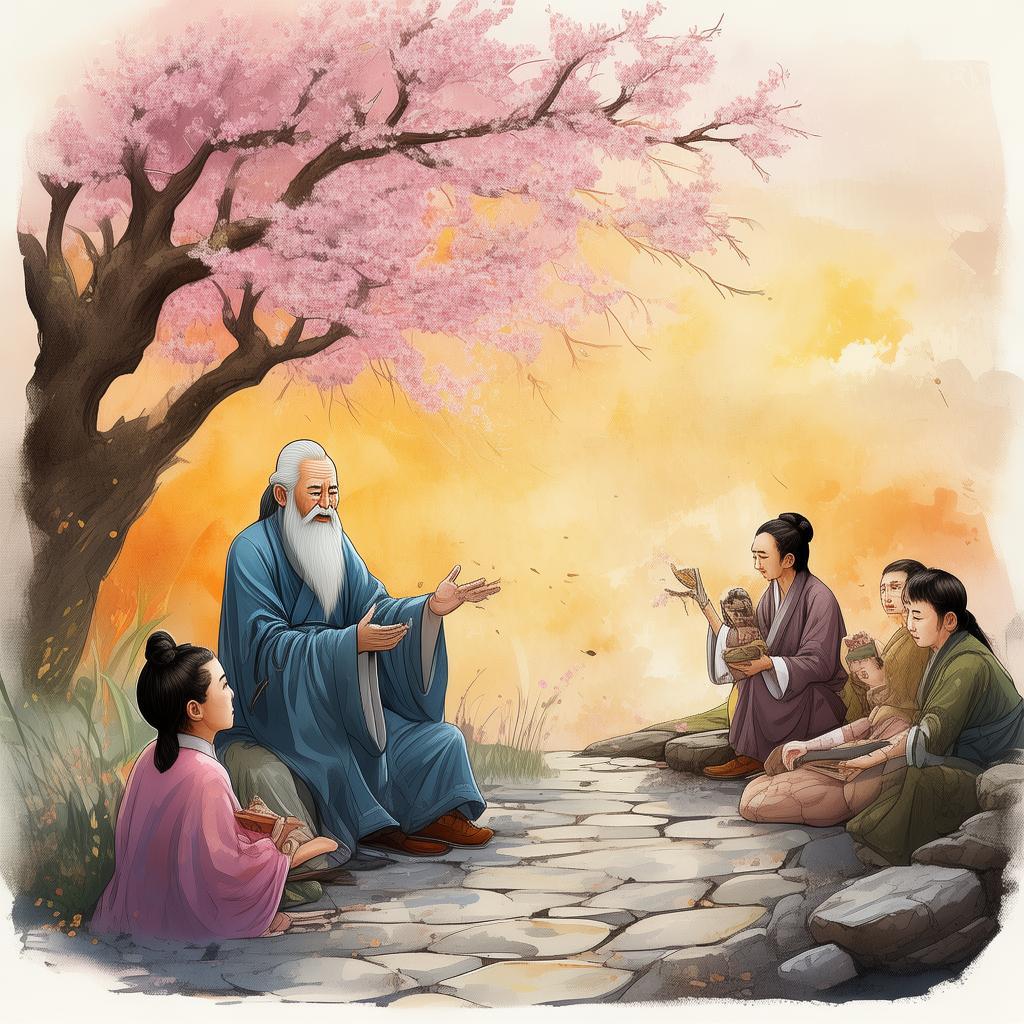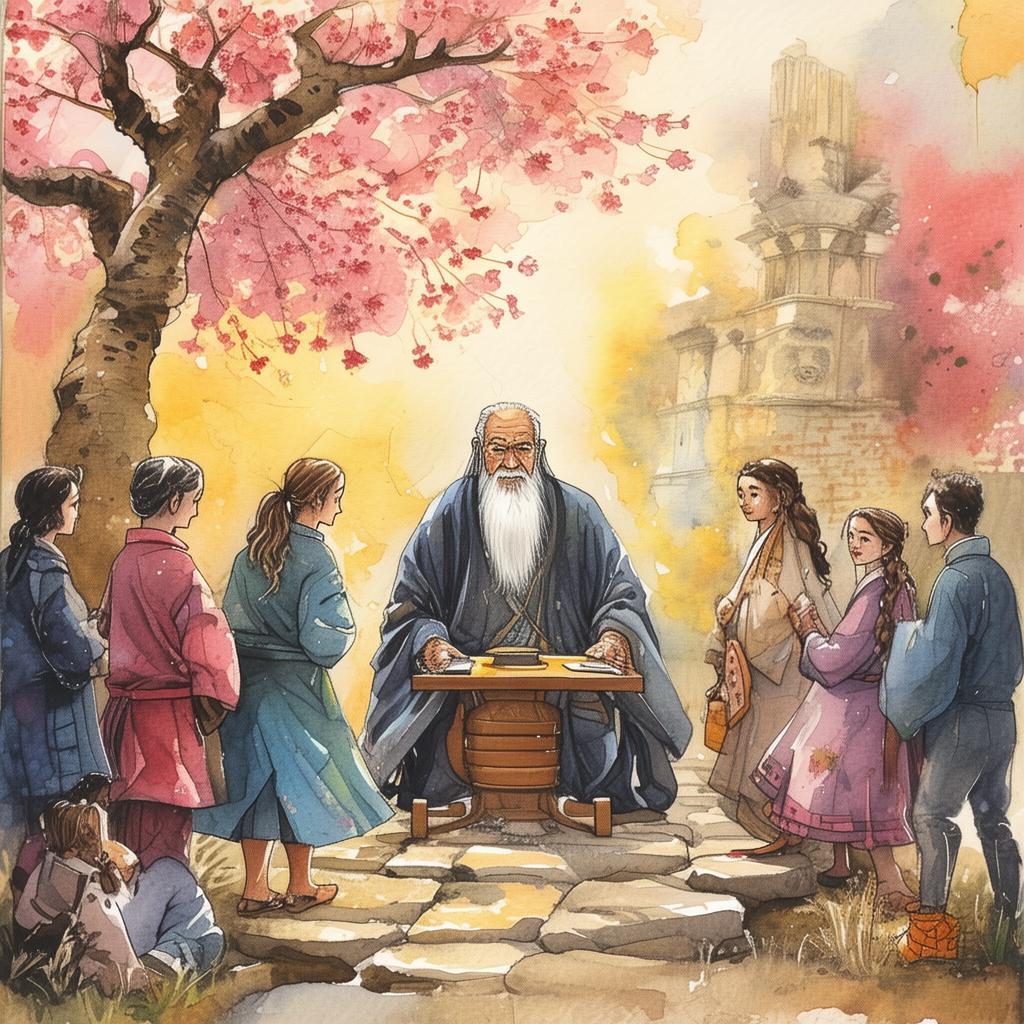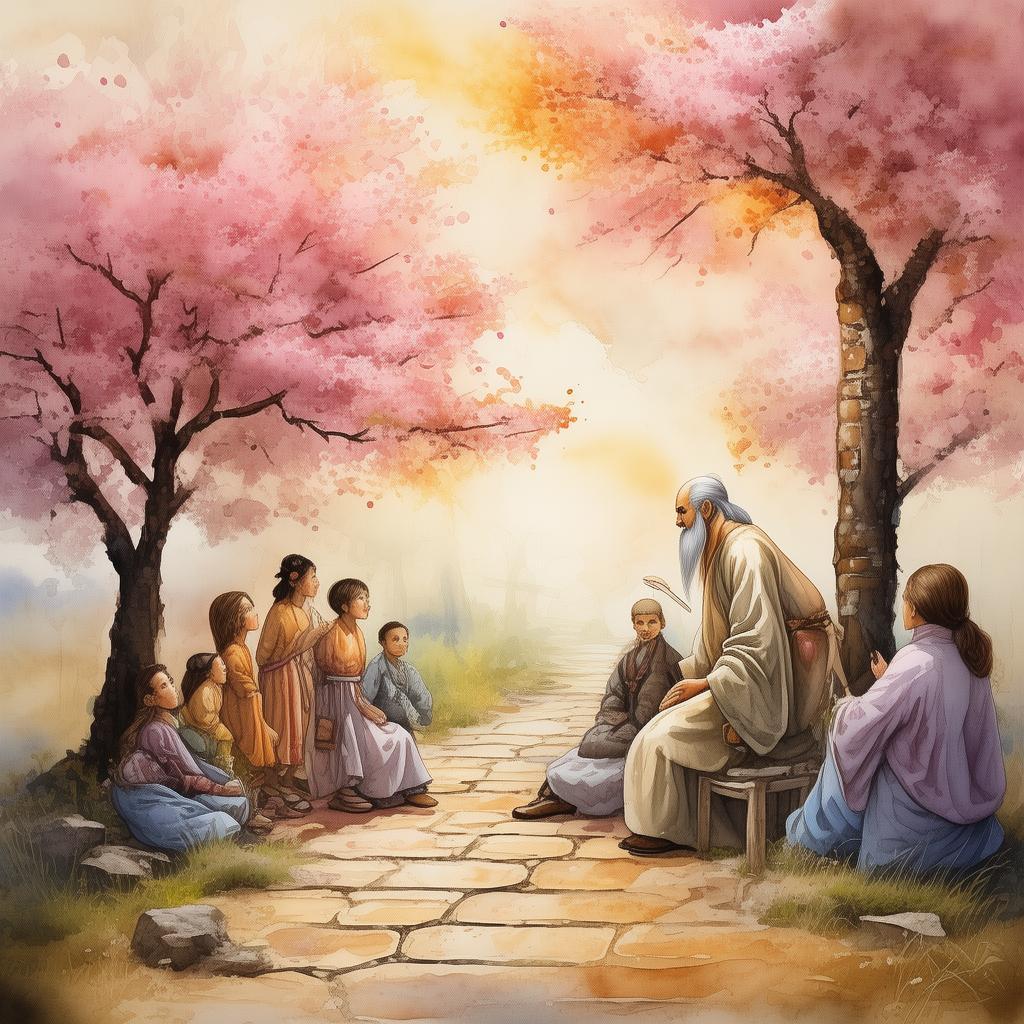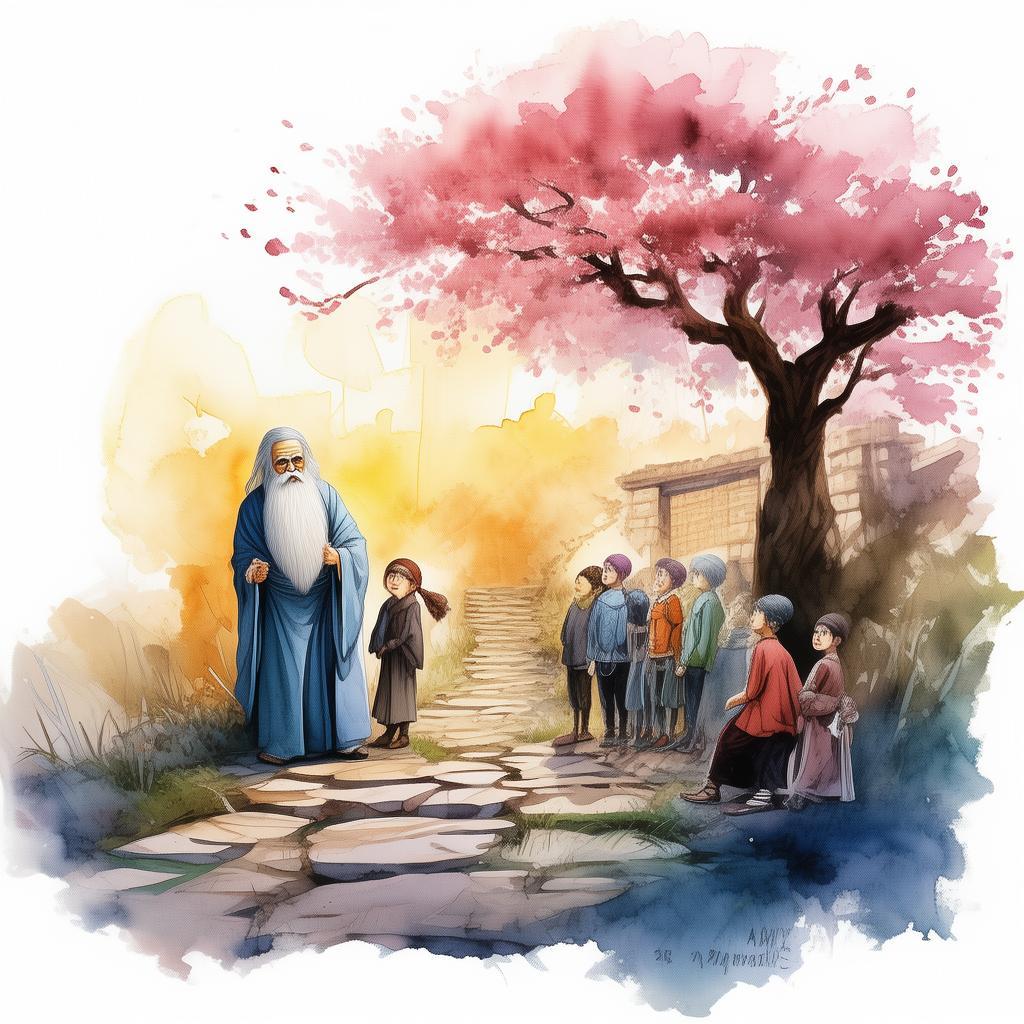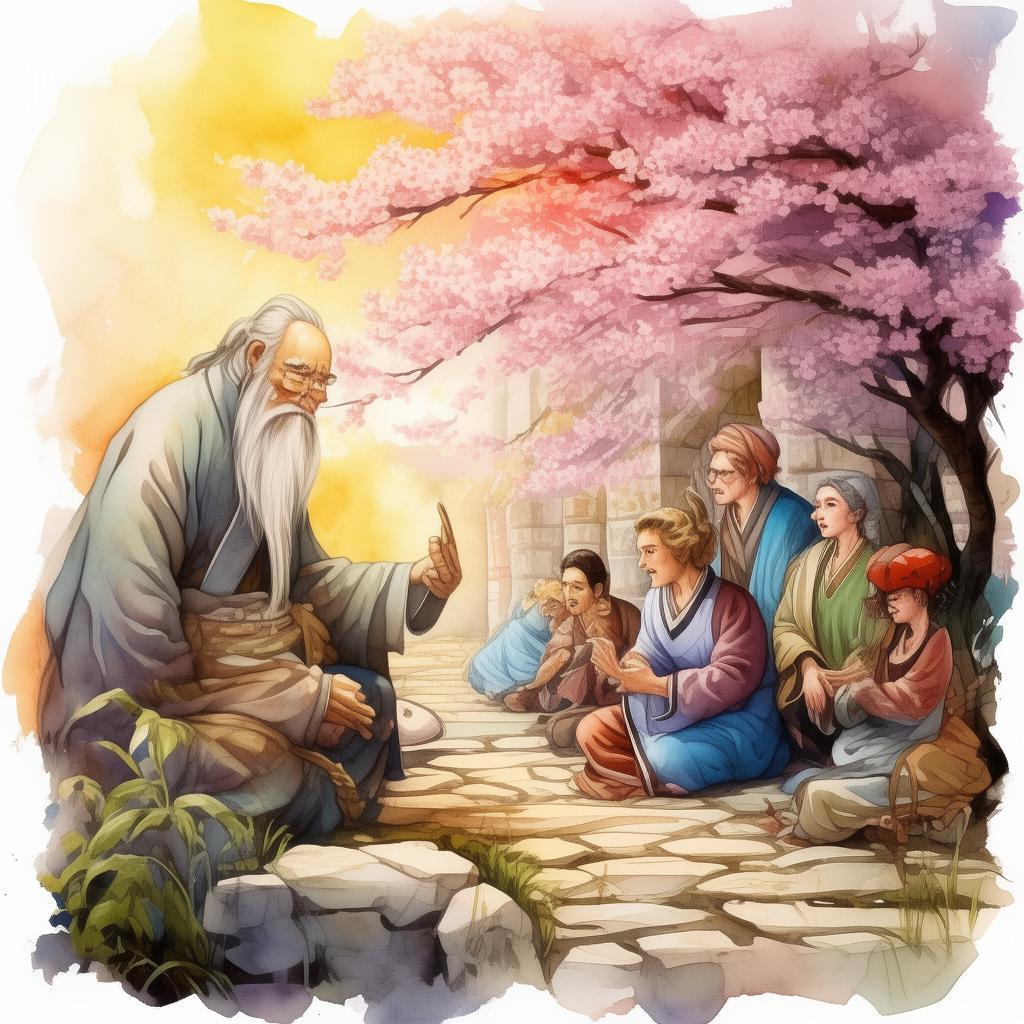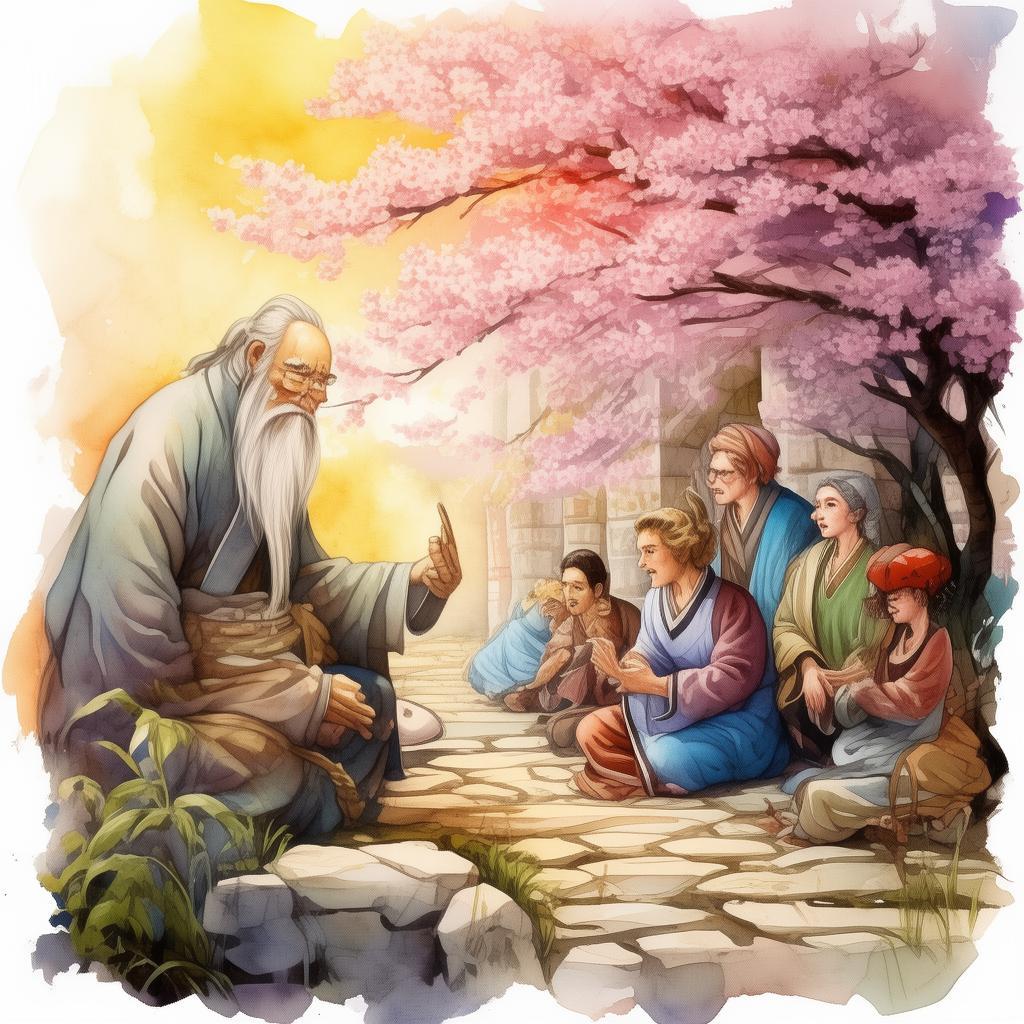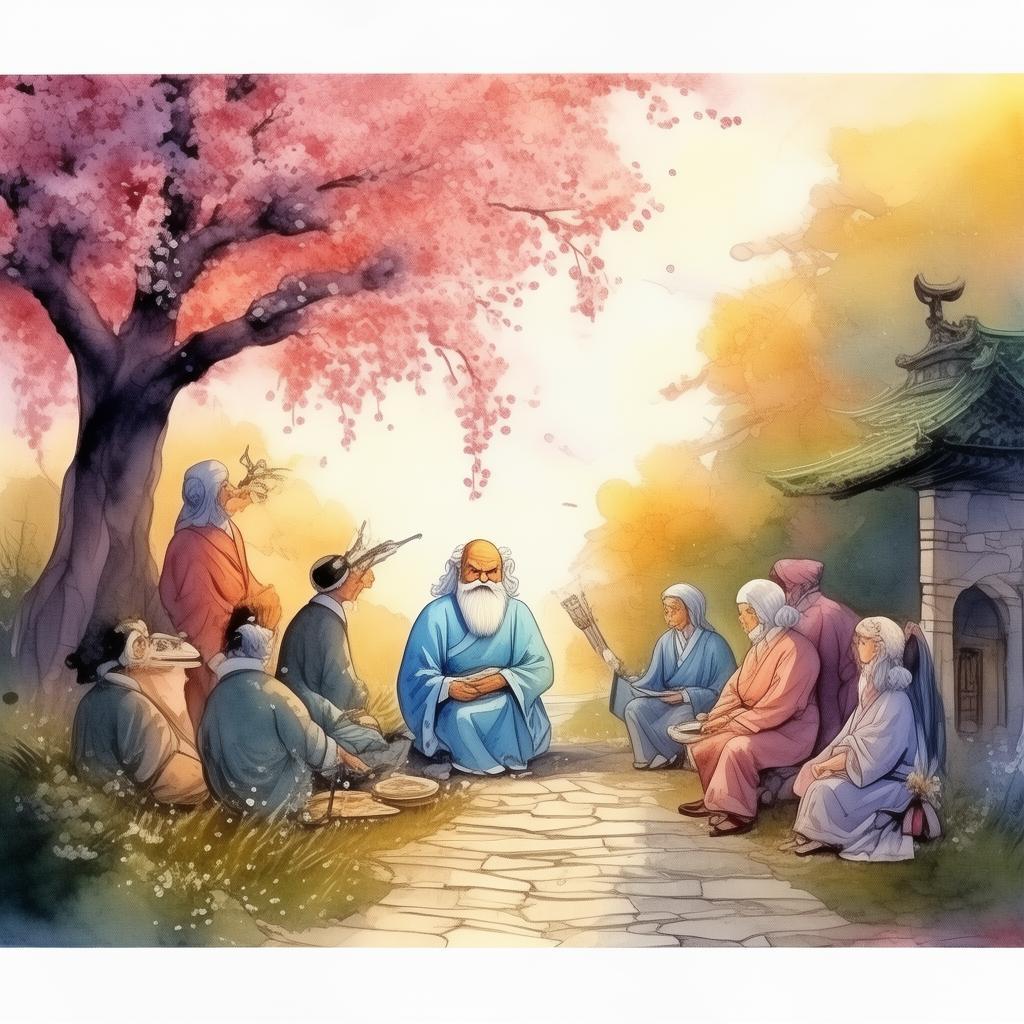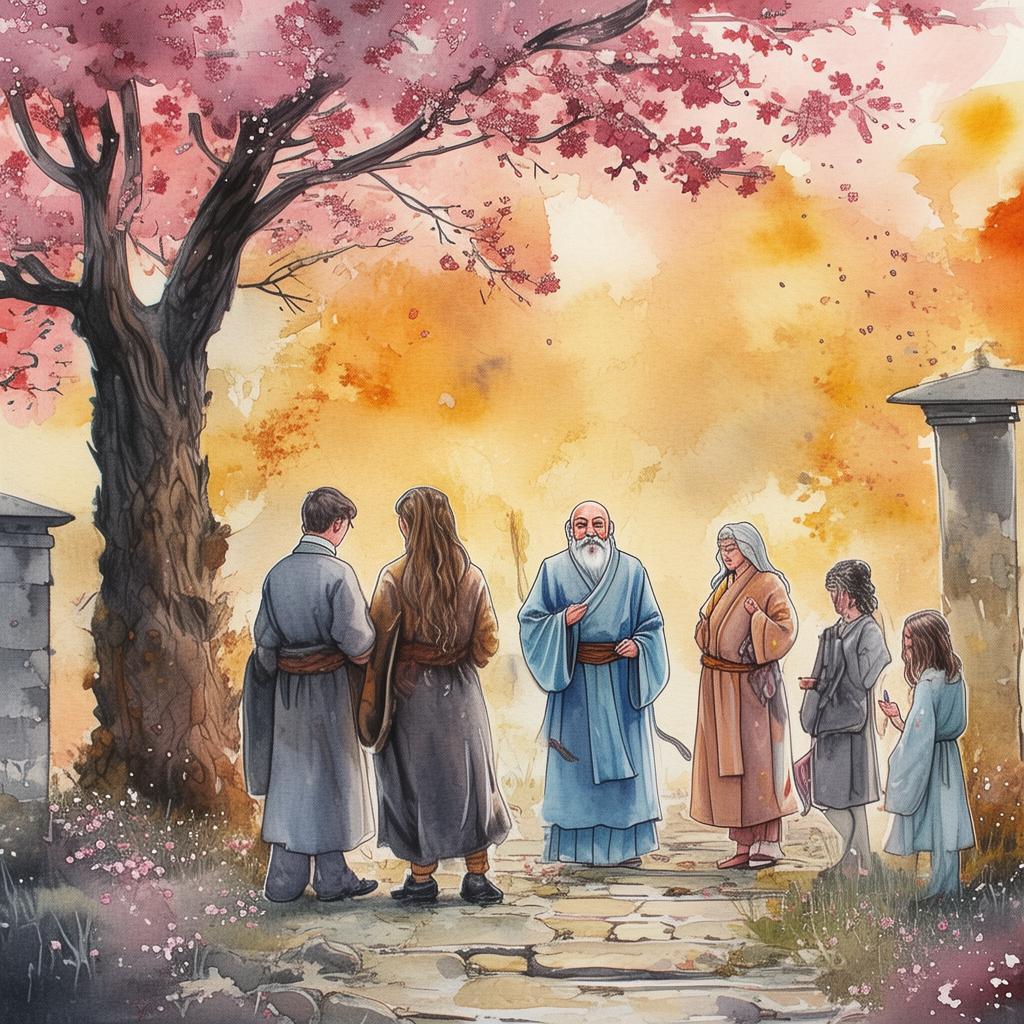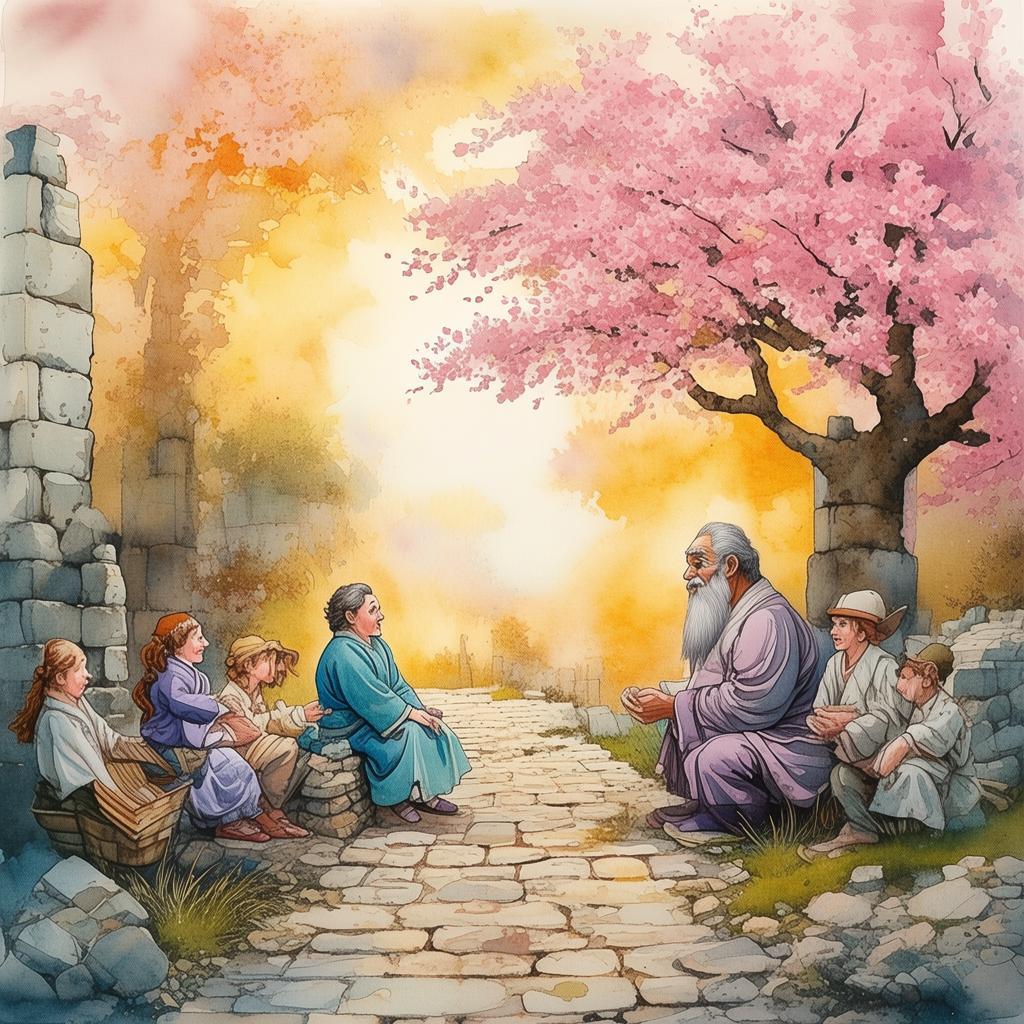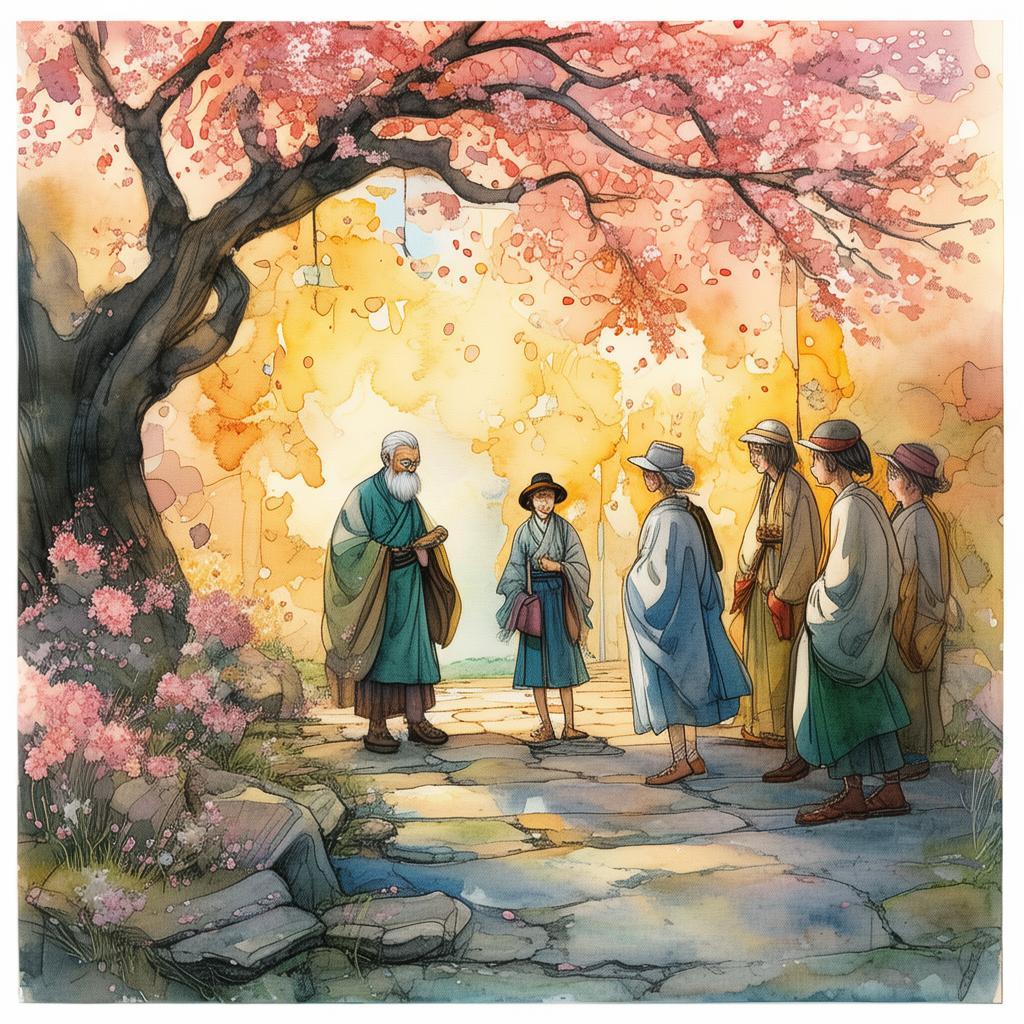Floral Folly: The Seven Blossoms' Dilemma
In the heart of the Garden of Elysium, where the soil was rich with the essence of divine nectar and the air was thick with the sweet scent of endless spring, there stood the Seven Blossoms. Each bloom was a marvel of nature, imbued with the power to grant wishes to those who dared to whisper their deepest desires. Yet, their beauty was not just skin-deep; it was a reflection of their wisdom and compassion, for they were the embodiment of the ancient Chinese proverb, "The flower that blooms in adversity is the most beautiful."
The Garden of Elysium was a place of eternal peace and harmony, guarded by the Fates themselves. The Seven Blossoms were the children of the Fates, born from the tears of joy shed by the gods during the creation of the world. They were destined to bloom and wither according to the will of the universe, their lives a testament to the fleeting nature of beauty and the eternal cycle of life.
One fateful day, a young maiden named Lian, who had been banished to the Garden for her defiance against the gods, stumbled upon the Seven Blossoms. She was captivated by their radiance and, in a moment of desperate hope, whispered her wish to be freed from her curse. The blossoms, feeling pity for her plight, granted her wish, but at a great cost. Their beauty would fade, and they would wither away, leaving the Garden in mourning.
The gods, sensing the impending tragedy, decreed that the blossoms must face a series of trials to prove their worthiness of their gift. The trials were designed to test their wisdom, courage, and compassion, and to reveal the true nature of their hearts.
The first trial was a riddle posed by the wind spirit, who challenged the blossoms to explain the nature of change. The blossoms, with their collective wisdom, replied that change is the only constant in the universe, and that embracing it is the key to growth and resilience. The wind spirit, satisfied with their answer, allowed them to proceed to the next trial.
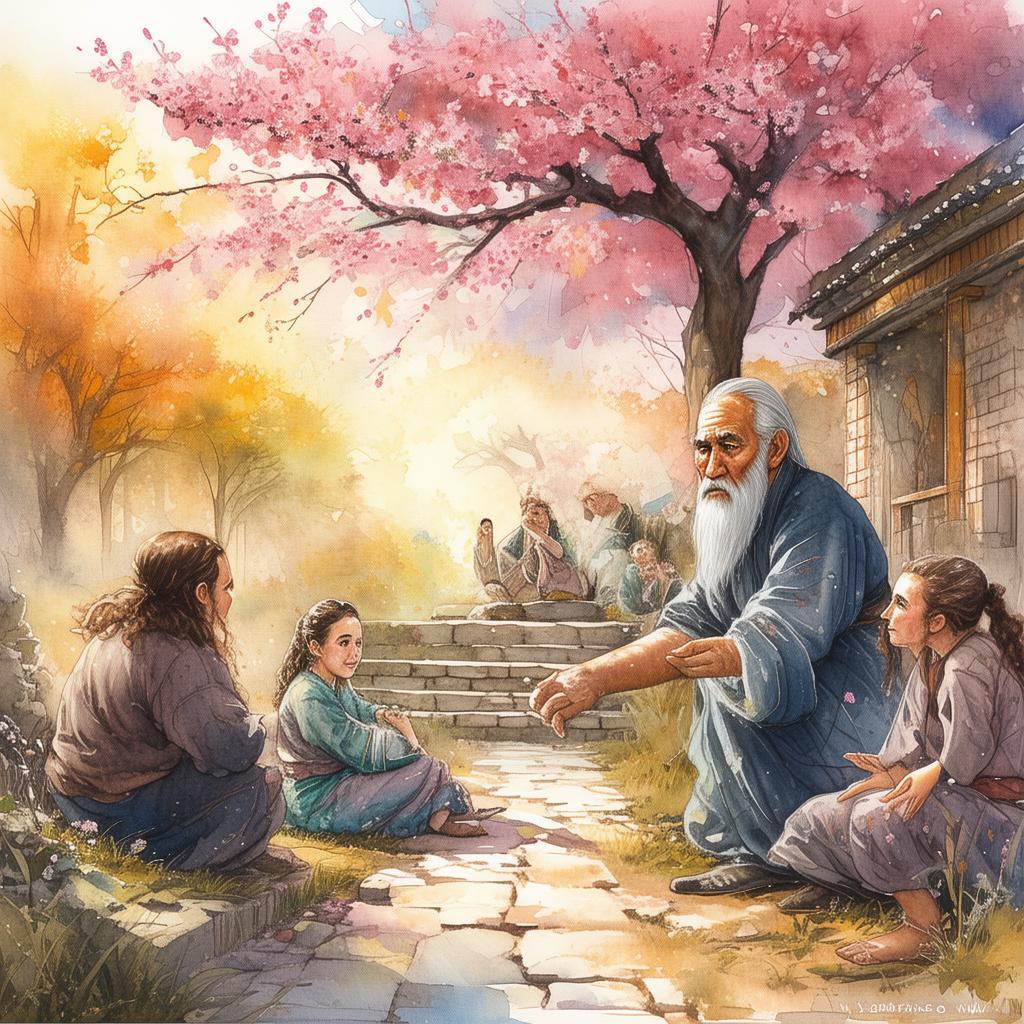
The second trial was a test of courage. The blossoms were to stand against the tempests that raged through the Garden, threatening to uproot them and scatter their petals to the winds. The blossoms withstood the tempests, their roots deep and their resolve unbreakable, and emerged stronger than before.
The third and final trial was the most difficult of all. The blossoms were to face their own mortality, as the Fates decreed that they must wither away after their final wish had been granted. In a display of unparalleled compassion, the blossoms chose to share their gift of granting wishes with the creatures of the Garden, ensuring that their wisdom would live on through the generations.
As the blossoms withered, their petals falling like rain, the creatures of the Garden mourned their loss. But soon, they noticed that the Garden was full of new life, and the wisdom of the blossoms had been passed on to the very soil that nourished them.
Lian, who had witnessed the blossoms' trials and witnessed their selfless sacrifice, realized the true meaning of the proverb. She understood that the most beautiful flower is the one that blossoms in adversity, for it is through hardship that true beauty and wisdom are revealed.
The Garden of Elysium, once again filled with life and laughter, stood as a testament to the eternal cycle of life, change, and wisdom. And the Seven Blossoms, though no longer in bloom, lived on in the hearts and minds of all who had witnessed their tragic yet beautiful demise.
✨ Original Statement ✨
All articles published on this website (including but not limited to text, images, videos, and other content) are original or authorized for reposting and are protected by relevant laws. Without the explicit written permission of this website, no individual or organization may copy, modify, repost, or use the content for commercial purposes.
If you need to quote or cooperate, please contact this site for authorization. We reserve the right to pursue legal responsibility for any unauthorized use.
Hereby declared.
